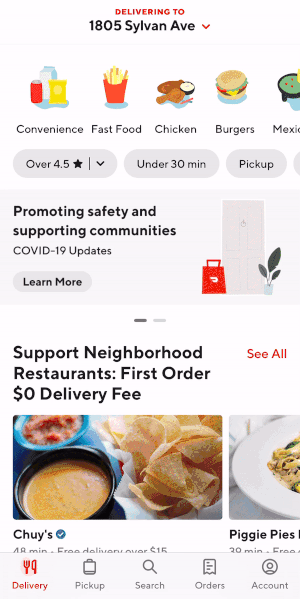Instacart announced today that it is expanding its delivery partnership with 7-Eleven across the U.S. Instacart will now deliver food, household items, alcohol, snacks and more from roughly 6,000 7-Eleven stores across 33 states and Washington, D.C. in as little as 30 minutes.
Customers looking to get items delivered from the famed convenience store chain can visit www.instacart.com/711 or by opening the Instacart mobile app.
Instacart first partnered with 7-Eleven back in September of 2020, starting with 750 stores across a limited number of southeastern states. It was the first convenience store partnership for Instacart, and the program has grown since, with today’s news marking an expansion of 4,000 new 7-Eleven locations to the service.
The convenience store category has certainly become more, well, convenient over the past year thanks to third-party delivery. In addition to Instacart, DoorDash ramped up its own c-store delivery ambitions last year launching delivery partnerships with 7-Eleven, Wawa, Casey’s General Store, and CircleK.
The pandemic, lockdowns and social distancing made home delivery table stakes for any food retailer. But the biggest competition for existing players like 7-Eleven and CircleK may not be other big c-store brands. Instead, it could come from the rising wave of new delivery-only conveniences stores. Gopuff recently raised $1.5 billion to scale up its dark convenience stores that deliver 24 hours a day. There are also new, small grocers like Fridge No More which are basically convenience stores, offering delivery in as little as fifteen minutes. Not to mention DoorDash building out its own chain of delivery-only DashMart stores.
The question these upstarts raise is whether getting the types of snacks and drinks and impulse items you find at convenience stores will become more like a utility. If fast delivery is available anytime, will people at home still stock up on items in one trip, or will they make multiple orders throughout the day to satiate their snacking whims? The answer may not be so convenient for existing c-stores. [I DON’T UNDERSTAND WHAT YOU MEAN WITH THE LAST LINE.]











